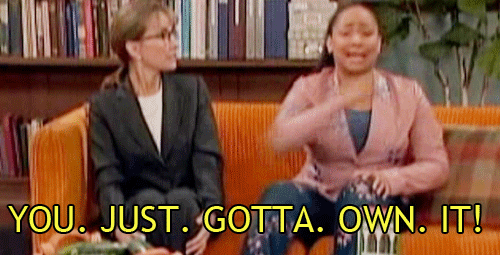We hear a lot about self-care and healthy boundaries, how they’re the superheroes of our hectic lives and intimate relationships. So, we want to talk about how it all works — this whole inner peace, outer zen thing — and we bet you do, too.
Over the next few weeks, we’re going to unpack what being vulnerable looks like in our day-to-day lives, and give you some tools to be your happiest, most Splendid self.
What does it really mean to be open — aka, to stay vulnerable?
We blog, tweet, meditate, stretch, hustle, and toast to the soundtrack of Self-Love, Emotional Honesty, and Mindful Living, but there’s something more to it that we don’t always talk about: vulnerability is vital, but it’s hella messy.
Stock images of vulnerability are everywhere. A pair of palms opening into the sunlight. Baby birds attempting flight. Soft pattering raindrops falling — now let’s take those images and shred them into a thousand tiny pieces because [breaking news] vulnerability looks a lot more like a sitting down in the middle of a raging tornado with bare feet and a hardhat. It’s sheer courage.
The standard definition of vulnerability doesn’t at all convey its inherent bravery and reduces it to being weak and capable of attack or assault. Doesn’t sound like a lot of fun, right? Thankfully, this isn’t the only definition out there.
Renowned speaker and author Brene Brown (our favorite champion of the V-word) has a much different definition to offer: “Vulnerability is basically uncertainty, risk, and emotional exposure,” she says. “Vulnerability is about showing up and being seen. It’s tough to do that when we’re terrified about what people might see or think… We end up hustling for our worthiness rather than standing in it.”
Time to step up, embrace vulnerability, and OWN YOU WORTH.

Knowing you’re worthy of being seen and heard helps you to be brave and to remain vulnerable in the times when you’d rather just curl up and hide. Embracing vulnerability feels like a jolt of courage in the midst of fear. It tastes like lemonade — sour and sweet. Being vulnerable means loving fully with the complete understanding that at some point we will get hurt, we will heal, and we will become stronger.
It Ain’t Easy Being Vulnerable

Disclaimer: this won’t be easy, and nothing worth doing ever is.
It’s okay to admit that sometimes our scared, beautiful hearts JUST. DON’T. WANNA. They’d rather hit the snooze, hide from the world, and live on Cheetos and Pop-tarts.
This is the deceptive allure of toxic behavior: it doesn’t ask you to clean up the mess, it doesn’t require flexibility, honesty, or engagement in your own life. You can eat food that wants to kill you, stay in one-sided relationships, and slave away in soul-crushing jobs.
It seems so easy: you can be 100% passive and sail through your own life almost non-existent. But does that sound like a life any of us want to live? Nope.
Let’s toss off the blankets of shame and self-doubt, and get down to the really-real, feely-feels of being vulnerable. But first:
Public Service Announcement: You Get To Be Happy!

The first and most important tool under your belt or bra (or wherever you want to stash it!) is understanding that you deserve to be happy.
Really, really, truly, truly happy.
Seriously. Even if you don’t believe it yet, tell yourself over and over, put it on a loop, press repeat until your arm hurts: “I deserve to be happy. I am worthy of love.”
Allow your heart to show up, as is, each and every morning. Practicing vulnerability begins with accepting yourself and believing that others will do the same. It means embracing the beauty within yourself and seeing the same beauty in others. By loving yourself first, you can be a better friend, a more honest lover, a more passionate employee, a more gracious employer. But most importantly, you get to be a happier you.
Sources:
Andrew Reiner, Love, Actually: Teaching Generation Y the Basics of a Strong Relationship. The New York Times.
Brene Brown, Daring Greatly: How the Courage to Be Vulnerable Transforms the Way We Live, Love, Parent, and Lead. Avery Publishing.
Dan Schawbel, Brene Brown: How Vulnerability Can Make Our Lives Better. Forbes.
Lee Watson, The Power of Vulnerability. Life Success.
